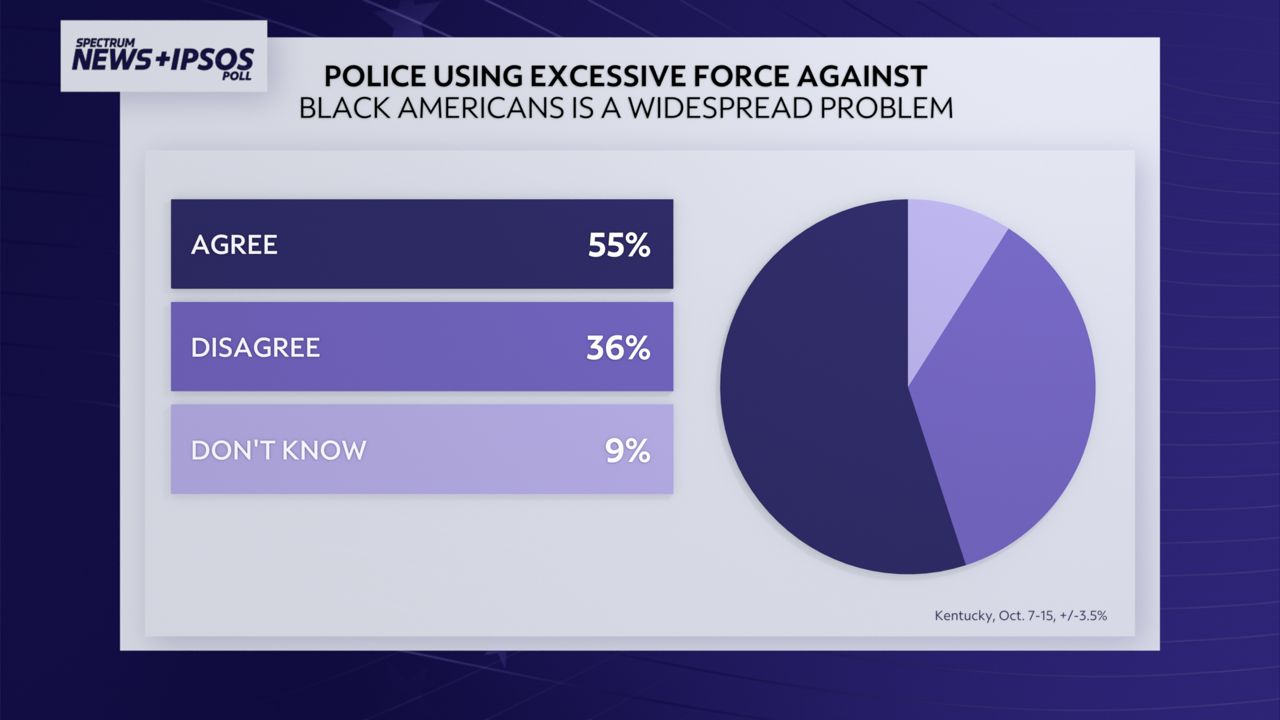LOUISVILLE, Ky. — Seven months after the police killing of Breonna Taylor in Louisville, a majority of Kentuckians said in a Spectrum News/IPSOS Poll that police use of excessive force against Black Americans is a "widespread problem." More than half of poll respondents also said racism is a "significant problem" in the state.
Longtime Louisville activist Christopher 2X told Spectrum News 1 that these results are meaningful because most Kentuckians are white. "One would've thought, at least at one time and point, that some of the polling would've reflected in a different way," he said. "There's definitely some needle moving."
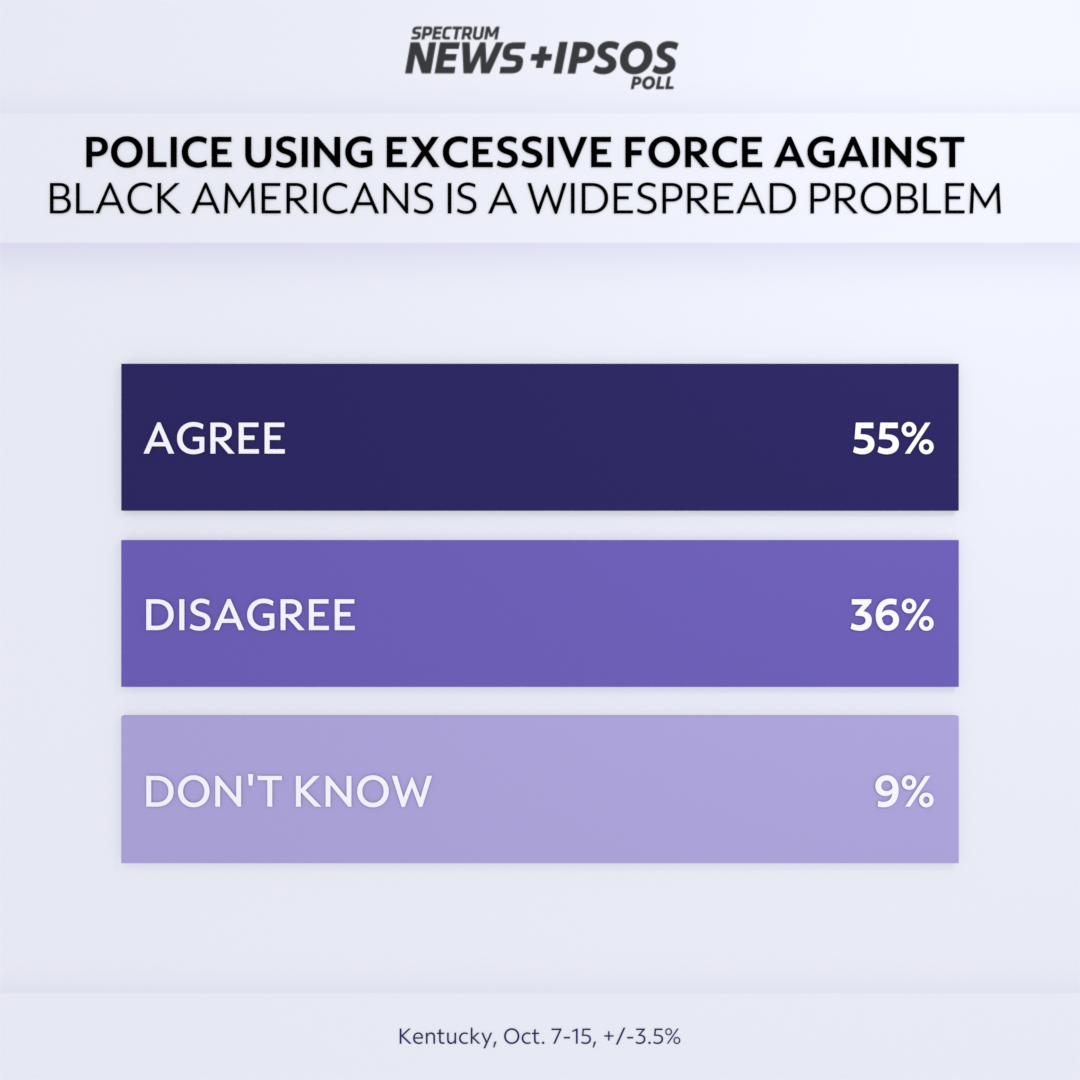
There is, however, a gap between the way white and Black Kentuckians see these racial issues. On the question of police use of excessive force, 51% percent of whites said it's a major problem, while 86% of Blacks said the same. Similarly, 55% of whites said racism is a major problem in Kentucky, compared to 87% of Blacks.
Blacks and whites were a bit closer to agreeing on whether the two groups receive equal treatment in the U.S., with 32% of Blacks and 47% of whites taking that position.
As for where the country goes from here, only 35% of Kentuckians are confident that the recent wave of racial justice protests will bring about a positive change in the country. That percentage nearly doubles when looking just at Blacks.
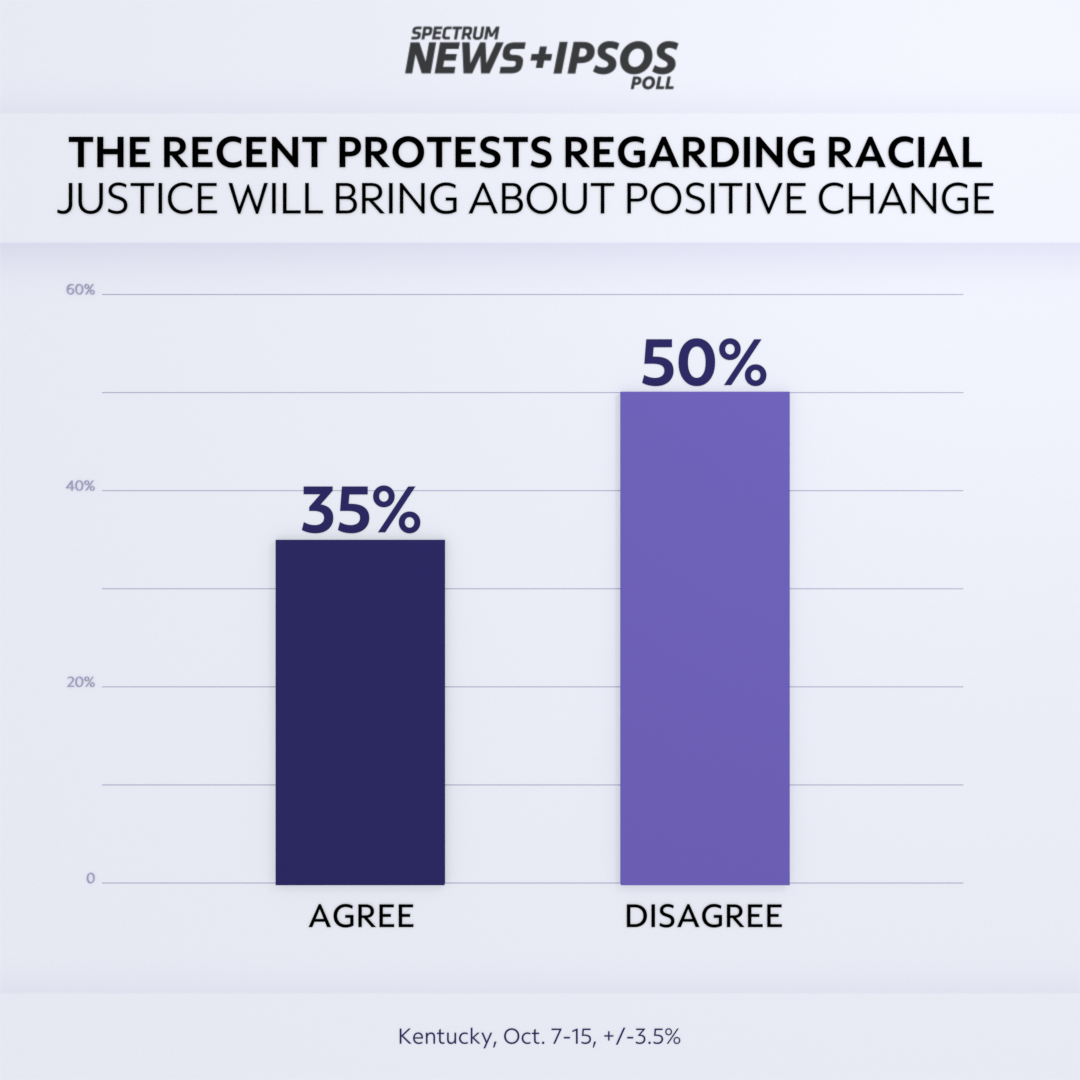
Kentucky Attorney General Daniel Cameron was thrust into the national spotlight in May when he was appointed special prosecutor in the Taylor case. Four months later, he announced that one of the three officers involved in Taylor’s death would be charged and only for shots fired into an adjacent apartment. Cameron has faced criticism of his handling of the case from protesters, lawyers for Taylor’s family, and grand jurors themselves. But Kentuckians are split in their reviews, with 39% saying he handled the case well and 38% saying he did not. Twenty-three percent said they don't know.
The racial breakdown of the question reveals stark differences. Forty-one percent of whites agreed that Cameron did well and only 17 percent of Blacks agreed.
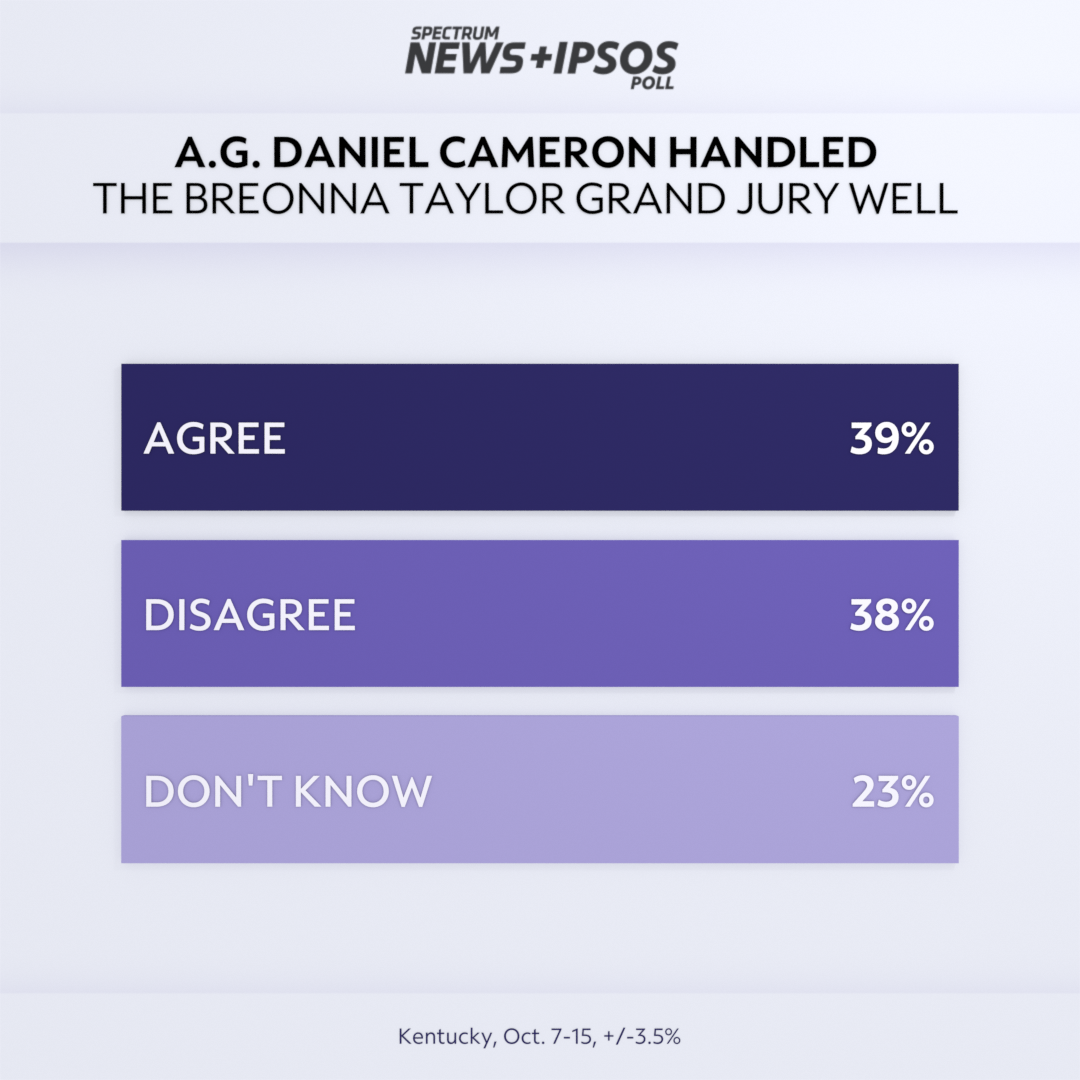
Though Cameron's investigation has concluded, the FBI continues to probe possible civil rights violations related to the case. Among the issues of interest to the FBI is the process Louisville police followed to obtain the no-knock warrant for Taylor's apartment. The poll found broad support for the FBI continuing its investigation, with 66% approving.
Sixty-six percent of Kentuckians also agreed that no-knock warrants should be banned in Kentucky. The move has already been made by Louisville’s Metro Council and both Democrats and Republicans plan to introduce statewide bans in Frankfort next year.
Regarding the protests the dominated downtown Louisville this summer, 59% of poll respondents said protests were more dangerous for police than for protesters.
And a third of Kentuckians said the decision not to charge any of the officers for Taylor's killing has led them to be more politically active this year.
Gov. Andy Behsear played a less direct role than Cameron in the response to Taylor's killing and the protests that followed, though he has faced criticism for the National Guard killing of David McAtee in early June. Still, Beshear's approval for his handling of protests and social arrest is 49%, while his disapproval is 38%.
Unlike Cameron, Beshear enjoys better marks from Blacks, 67% of whom approve of his handling of the issues.
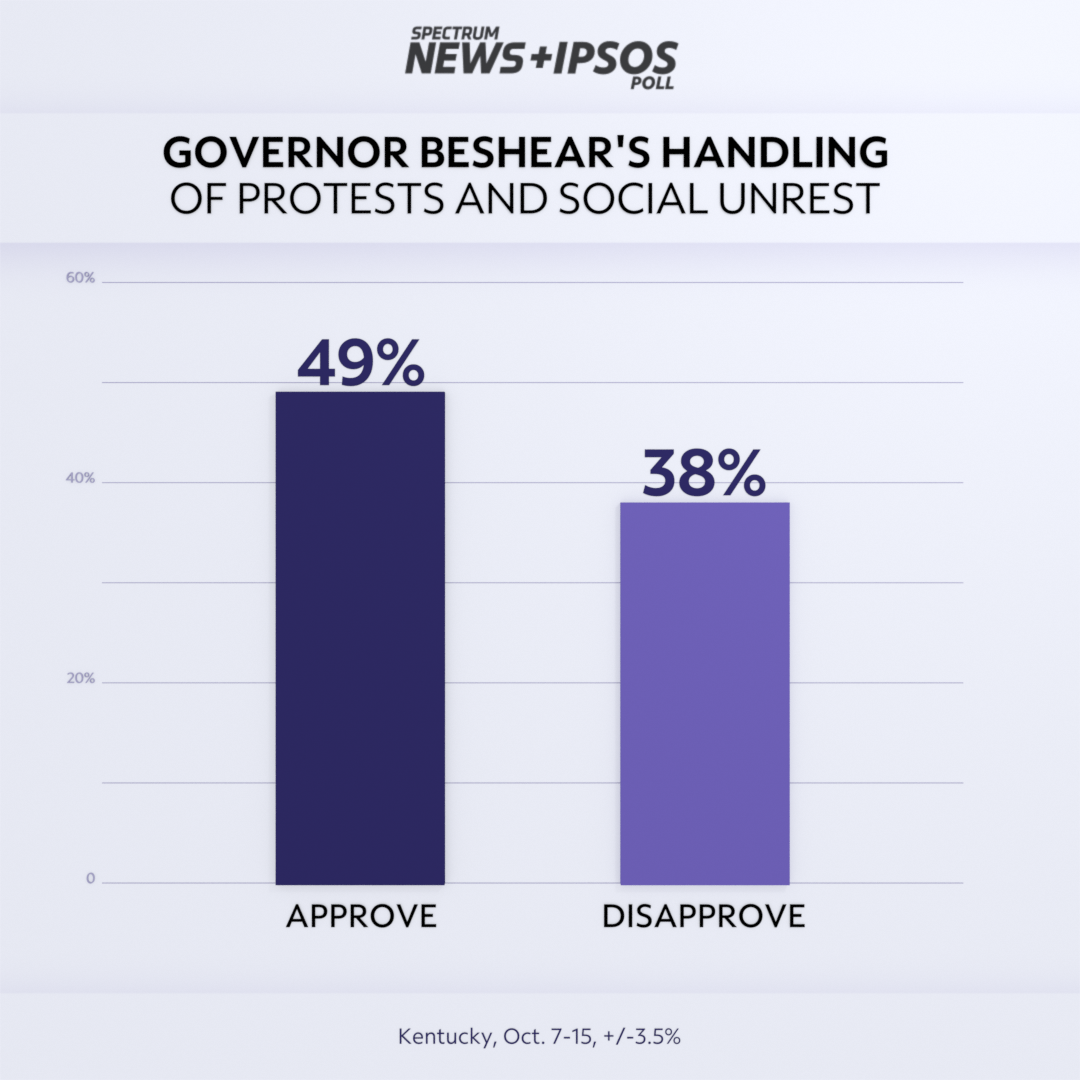
Big cities across the country saw spikes in violent crime in the summer of 2020. Louisville and Lexington were no exceptions, with both cities already passing, or on pace to pass their record for annual homicides.
Still, our poll showed that most Kentuckians feel safe in their communities. Fifty-three percent of poll respondents said they feel safe and 40% said they do not. But the numbers are reversed when looking only at the responses from Louisville. In the state’s biggest city, 61% of people said they don't feel safe.
The racial breakdown of responses reveals major differences as well. Thirty-seven percent of whites said they don't feel safe, compared to 65% of Blacks. There is also a strong urban/rural divide on the responses, with 59% of urbanites feeling unsafe versus 30% of those in rural areas.
The idea of redirecting police funding toward social programs does not enjoy much support across the state, with only 31% supporting it. More than half of Black poll respondents agree with the idea though.

Young people in Kentucky are more supportive of protests and dramatic socials changes, the poll shows. While 47% of all respondents said they support Black Lives Matter, the number jumps to 59% among those 18 to 34. Support for reallocating police fundingto social programs also jumps by 12 percent among the younger age group. The youthful contingent is also likelier to believe that recent protests will bring about lasting social change and to say that they're getting more involved in politics due to the city's protest for racial justice.



